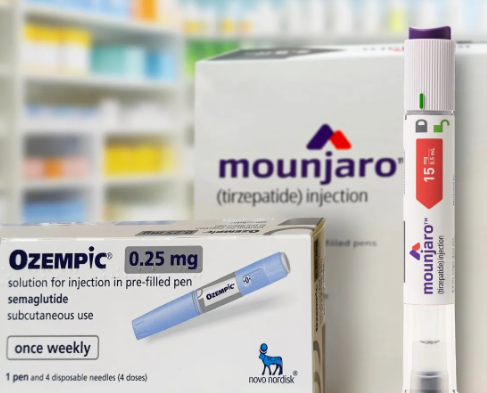According to a recent study, Mounjaro performs better than Ozempic at aiding in weight loss.
Researchers reported on July 8 in the journal JAMA Internal Medicine that patients receiving tirzepatide (Mounjaro, Zepbound) lost considerably more weight than those taking semaglutide (Ozempic, Wegovy).
“Those with obesity or overweight who received tirzepatide treatment were considerably more likely to experience larger reductions in body weight and clinically meaningful weight loss as compared to those who received semaglutide,” the research team, which was led by Dr. Nicholas Stucky, vice president of research at Truveta Inc., a medical research collective, concluded.
Also read: Ways To Mitigate The Harm Caused By Detroit’s Housing Inequity Heritage

Over 18,000 overweight and obese patients who were prescribed either medication to help control their type 2 diabetes were monitored for the trial between May 2022 and September 2023.
Both pharmaceuticals were approved for use in weight loss after being initially designed as treatments for type 2 diabetes.
The medications are successful in encouraging modest weight loss, according to the results. Researchers discovered that over 82% of patients on Mounjaro dropped 5% or more of their body weight, whereas nearly 67% of patients on Ozempic did the same.

Mounjaro
On the other hand, people who used Mounjaro were more likely to gain weight. Approximately 42% of Mounjaro patients experienced a 15% or greater reduction in body weight, in contrast to approximately 18% of Ozempic users.
Results indicate that, overall, patients on Mounjaro were 76% more likely to lose 5% or more of their body weight, 2.5 times more likely to lose 10% or more, and 3.2 times more likely to lose 15% or more of their body weight than those on Ozempic.
According to the study, Mounjaro patients also saw greater drops in body weight over the course of their first year on the medication.

In comparison to Ozempic patients, Mounjaro patients had dropped less than 4% of their body weight after three months. After six months, the difference was 6% versus 10%, and after a year, it was 15% versus 8%.
Both medications function by imitating the actions of the gut hormone GLP-1, which is involved in preserving steady blood sugar levels. Additionally, this effect promotes satiety and slows digestion.
Nevertheless, Mounjaro also activates GIP, a different gut hormone, which may account for the enhanced outcomes observed in this investigation.

Also read: The Federal WIC Program Could Improve Women’s And Newborns’ Pregnancy Outcomes
images source: Google
Disclaimer: The opinions and suggestions expressed in this article are solely those of the individual analysts. These are not the opinions of HNN. For more, please consult with your doctor




































